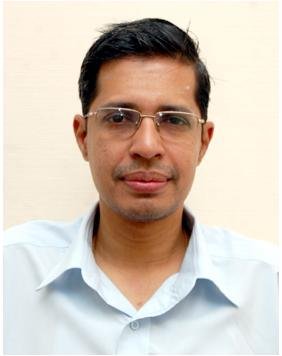"Challenge is not technology but interpretation of data"
August 11, 2015 | Tuesday | Interviews | By Rahul Koul Koul
Challenge is not technology but interpretation of data
Prof V Kamakoti, Department of Computer Science and Engineering, Indian Institute of Technology (IIT), Madras..
IIT and Paterson Cancer Centre are developing an indigenous IR Mammographic Unit for non-invasive screening technique for early breast cancer detection. Prof Kamkoti answered questions on the role of IIT, Madras in developing the affordable innovation. Read on:
Q: What are the challenges that stand before this revolutionary technology that is being proposed to be manufactured in India?
The challenge today is not the Technology but the interpretation of the data which we collect using the Technology. The goal of the project is to create an automated Kiosk type of environment, wherein, a person can take a "selfie" thermal mammogram without any other human assistance. The thermal image need to be processed by the software and the person will be provided with an answer "No risk" or "Better consult a doctor". The main challenge is that whenever the software gives the "No risk" answer, it should be absolutely correct. This software has to be developed by extensive data analytics on data collected over large number of people. The software ned to be evolving over time as it encounters new type of cases. On the technology front, still high resolution thermal sensor arrays are imported. If these could be manufactured in India, then the cost of the thermal camera will go down.
Q: What kind of funding is required to set up the R&D, clinical development and final regulatory clearances? Are their any commitments from govt agencies or private investors?
Ans: There is a hardware part and a software part to this project. As of now, the hardware unit we have developed is absolutely non intrusive on the patient and radiation free. It is just capturing a thermal image, which even the modern mobile phones do. The first cut design, specifically the robotics is working well. There are some modifications that we plan to do on the robotics and on camera resolution. The major part is the software development that requires collection of data; analytics of the data; and, development of the detection module. This shall involve advanced artificial intelligence/machine learning concepts. We had received funding from IIT Madras Alumni and Department of Information Technology, Government of India for the first phase. We will be approaching funding agencies for the Phase 2. The funding required will be close to 2 Crores over a period of time.
Q: Is there need for special consideration by the government especially under 'Make in India' campaign?
It will be certainly helpful if we get a consideration under "Make in India" campaign.
Q: How important are early diagnostics in cancer screening? How can the new technology overcome loopholes of mamography?
Early diagnosis of any disease and specifically cancer is of prime importance. Thermal mammography studies thermal activity of the region under scan rather than its structure. We believe that the thermal activity will start much before the structural deformation (for eg. lump in the breast is a structural deformation). If we can observe this accurately then it becomes one of the earliest detection of the disease reported, which is the best diagnosis from the patient's view point.
Q: When is this technology expected to reach common man? What are the targets set by partners?
By God's grace we have fixed a target of three years, subject to availability of funding and data.









